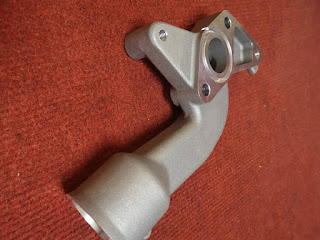Aluminum mold casting is a method that produces high tolerance and high-quality parts just by pouring molten aluminum into a precisely designed and precision-engineered die, mold, or form. The production of complex, intricate, detailed parts is an efficient process that exactly matches the specifications of the original design.
A positive benefit of aluminum cast parts is the layer of aluminum oxide that is immediately formed after the part is removed from the mold, which against corrosion and rust provides a wall of protection.
The Process of Aluminum Casting Process
For Custom Aluminum Casting one typical method is to pour molten aluminum into a steel mold that has been precision processed to make sure that the cast piece will have an exceptionally smooth and refined surface. This particular process is one such method that is used to produce aluminum castings, each of which is used for creating specific types of parts.
A variation in the casting processes is the type of mold, which is permanently made of steel or is temporarily made of a non-metallic material. Each of the types of castings has its advantages and for their reliability and product quality, they are dependent.
It is important to examine each of the different distinct methods to discuss the aluminum casting process and how they are used since there is not just one process. Some manufacturers are specialized in one or several methods; many producers also give customers a choice as to which process, they would prefer.
Selecting an Alloy to fit an application
While deciding on the type of alloy for an application, the list below serves as a guideline for the properties and characteristics that are necessary.
- Corrosion Resistance – It is excellent in its natural state but when alloyed it changes
- Heat Treating – It reduces chemical segregation and improves work ability
- Strength – measured by tensile strength, temper, and yield
- Form ability – It can undergo plastic deformation
- Machining –resistant to low temperatures, bend ability, able to be drilled
- Weld ability –solidification
shrinkage, hydrogen solubility, thermal conductivity, oxide coating






No comments:
Post a Comment